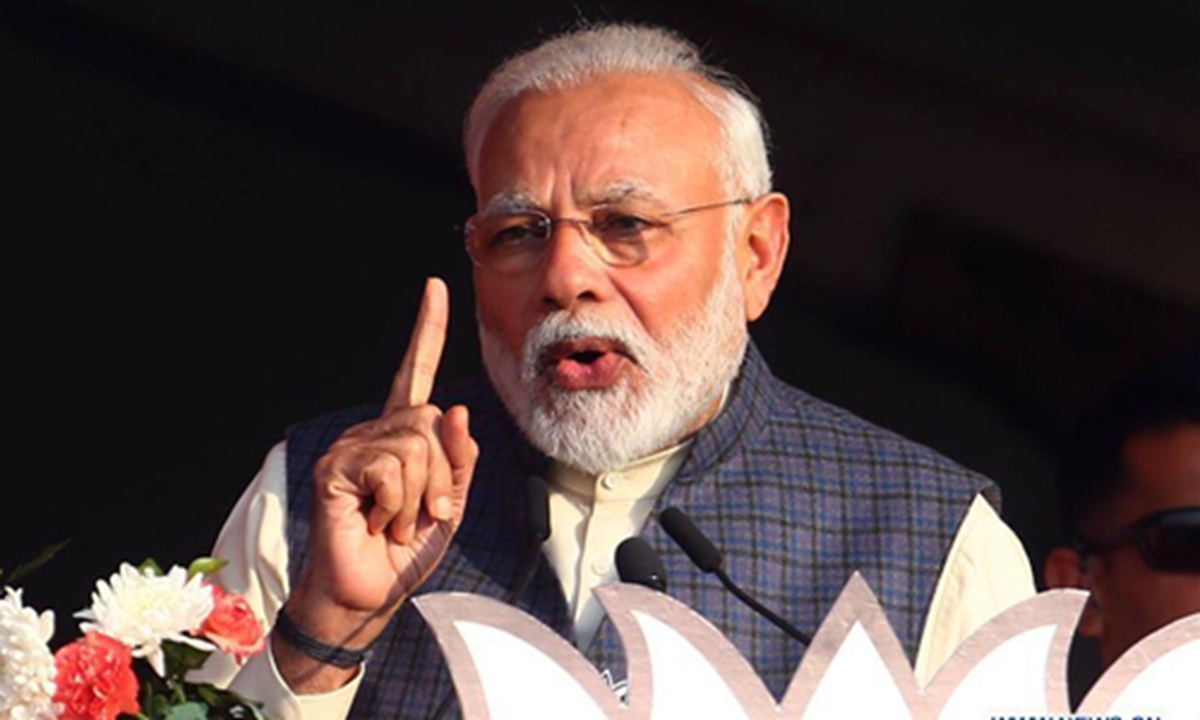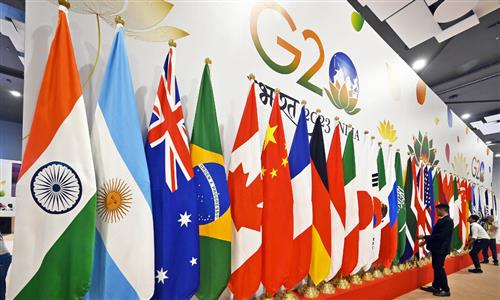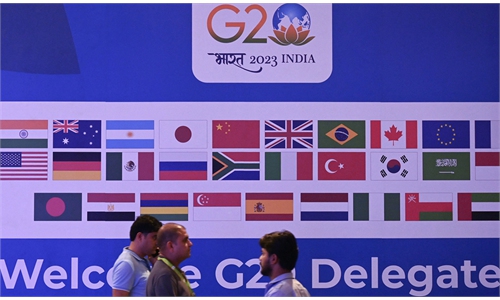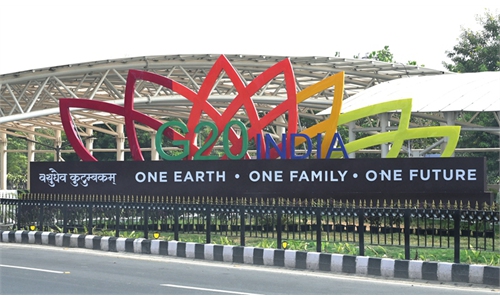
Indian Prime Minister Narendra Modi Photo: Xinhua
On the sidelines of the G20, announcement of US-led India Middle East Europe Economic Corridor (IMEC) become clear manifestation how India desires to play its cards globally. It shows that, despite knowing the potential and proven dividends of joining the Belt and Road Initiative (BRI), India has firmly decoupled itself from the global framework, believing that its interests will only be protected in the US-led circle.
India, mistakenly, overlooked the fact that US has a habit of casting aside its international commitments and even ditching close friends. The US' lack of consistency in implementing global economic policies has already drawn the ire of international community, especially when it comes to the growing list of meaningless US-led frameworks.
For example, the Trans-Pacific Partnership, an ambitious trade pact involving the Indo-Pacific countries, was part of former president Barack Obama's strategic pivot to Asia. Obama successor, former US president Donald Trump, pulled the US out of the trade pact in 2017. The US also withdrew from Paris Agreement in 2017. It also called an end unilaterally to the Iran Nuclear Program agreement, a landmark agreement reached between Iran and several countries, in 2018. Washington also played a role in cancelling Australia-France Submarine Deal.
India needs to understand the malevolence of US-driven geopolitical and geo-economic tactics as well as realizing the tangibility of win-win benefits of the BRI rationally and logically.
China and India are both founding members of BRICS, a global pact that unites the Global South, and if India steps back from its hostility against China, the two countries could share significant opportunity for cooperation.
The BRICS countries (Brazil, Russia, India, China and South Africa) recently agreed to expand the grouping by adding six new members: Saudi Arabia, the United Arab Emirates, Egypt, Ethiopia, Argentina and Iran.
This year marks the 10th anniversary of BRI. The BRI's 10-year performance, numbers, scale, size and scope are enough to convince India if Modi government takes a pragmatic approach.
The BRI has a massive head start over all the newly formulated West-led corridors. Ever since its launch in 2013, China has mobilized close to $1 trillion in investments across over 3,000 BRI-linked infrastructure projects ranging from ports, pipelines, highways, railways, power plants, and other connectivity links. Over 150 countries have signed up for BRI projects and funding, attracted by the promise of upgraded trade and transit networks.
From the China-Pakistan Economic Corridor (CPEC) to railways in Laos and highways in Montenegro, the BRI's positive impact stretches across vast swathes of Asia, Europe, Africa, and the Middle East.
The Indian economy grew at an impressive 7.8 percent annual rate in the second quarter of 2023. By joining the China-proposed BRI, India can easily boost its economic gains.
The opinion is based on an interview with Yasir Habib Khan, president of Institute of International Relations and Media Research in Pakistan. The opinions expressed are those of the writer(s) alone and do not necessarily reflect the position of the Global Times.



